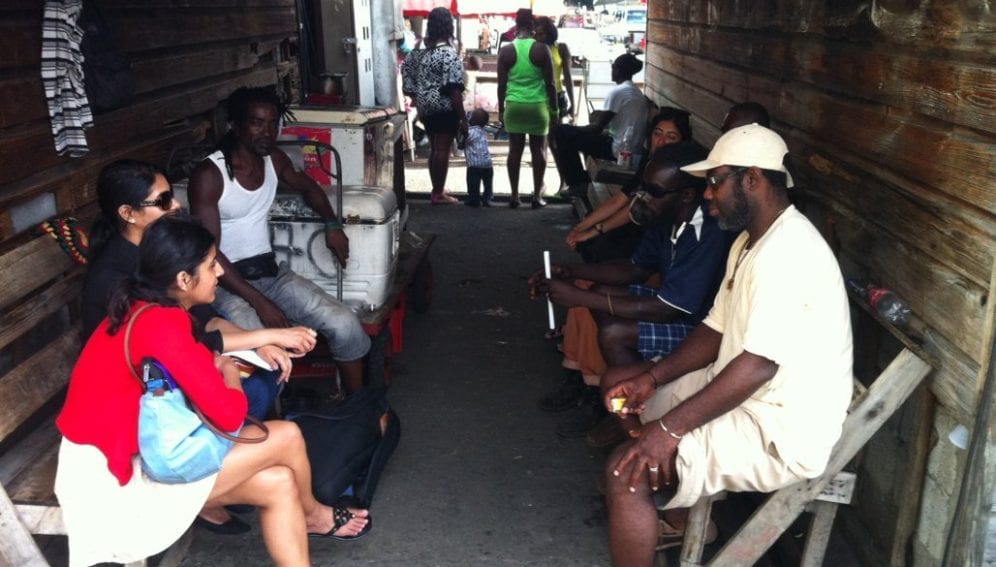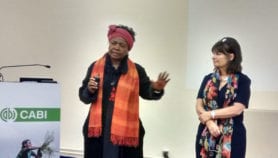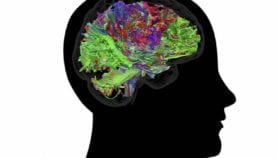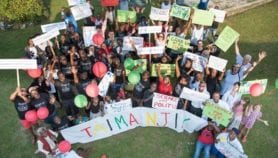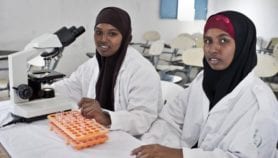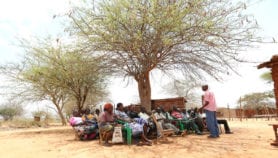By: Craig Katz
Send to a friend
The details you provide on this page will not be used to send unsolicited email, and will not be sold to a 3rd party. See privacy policy.
Research in the Caribbean on alcohol use problems shows that self-help groups need not be anonymous, says Craig Katz.
Excess alcohol consumption is recognised as a global health problem. As of 2004, alcohol use disorders — medical conditions where alcohol use causes significant distress, dysfunction, or both — contributed to nearly four per cent of all deaths and five per cent of all years of productive life lost to disability worldwide.
Yet the evidence for how to best tackle such disorders in resource-poor countries is as scant as the problem is big. A mere 30 articles in the entire scientific literature are available to guide researchers working on this, and most of them are anecdotal. [1] So it may be tempting to adopt interventions that work in developed countries. But surprising findings from field research in a small island country in the Caribbean suggest a need to rethink well-established models for tackling alcohol problems.
Leadership and open-air meetings
In every single country in which my psychiatry colleagues and I conduct mental health work — from Central America and the Caribbean to Sub-Saharan Africa and South Asia and the Pacific Rim — requests for help with alcohol and drug use disorders are among the most common we receive.
Consider Saint Vincent and the Grenadines, where rum is consumed in abundance and where, in 2008, alcohol use disorders were responsible for about four deaths per 100,000 people — nearly double the rate of the United States and among the highest rates worldwide. [2] And a 2009 WHO report found that substance use problems were second only to schizophrenia as reasons for psychiatric care in this island country. [3]
But resources for addressing mental health problems in general, let alone alcohol use disorders, are scarce there. So in the summer of 2012, my research team embarked on an effort to pilot self-help groups modelled on Alcoholics Anonymous (AA) as a low-cost approach to the issue. [4]
After gathering the perspectives and suggestions of community members, we established self-help groups in three Vincentian communities. However, only the group in one community, the small town of Barrouallie on the west side of the island, carried on with their meetings.
We spent the subsequent two years monitoring the progress of that group of about ten men and women. And we learned that an essential ingredient in its success was the involvement of a leader who was neither a peer nor identified as having recovered from an alcohol-related disorder — a departure from the AA or other self-help models common in Western countries.
“It could well be that in parts of the developing world, and maybe even the developed world, it is time to move beyond Alcoholics Anonymous.”
Craig Katz
The leader who had taken the group under her wing was a senior nursing officer who lived in the town. The one commonality we could find among the pilot groups that failed to flourish was that they had no such leader to rely on.
The Barrouallie group chose to meet outdoors, on a kerbside across from a sunlit baseball field, and not down in a secluded church basement as in so many Western settings. This refreshing approach even helped them to recruit — one of their most devoted members joined the group after wandering up to it.
‘Marketing’ the group
Soon after the group members convened, we also received an unexpected request: for T-shirts to advertise their involvement and promote the group to fellow Vincentians. After much back and forth between the group leader and our research team, we settled on T-shirts that picked up on the hurricane proneness of the island, with fronts declaring “Alcohol can cause as much damage as a hurricane” and the back announcing “I cannot control the weather but I can control my drinking”.
Months later, we even persuaded a paternalistic senior administrator in the Ministry of Health to allow group members to go on television to talk about their sobriety.
Before the project began, we worried about how the inherent reality of everyone seeming to know everyone else on such a small island would subvert our ability to establish Western-style privacy around mental health issues. However, the reality proved to be quite the opposite of that.
The Barrouallie participants have been vocal in declaring that their determination to be anything but private about their alcoholism and about how the transformative role of the self-help group was instrumental to the group’s success.
Several other self-help groups we tried to establish in Saint Vincent and the Grenadines have not succeeded to the same degree. But we observed in them similar seeds of endurance: non-peer leadership, no need for anonymity and a thirst for community recognition for their efforts.
We do not yet know whether the lessons we have learned here can be translated into practice elsewhere in the world. But, so far, it seems that this unconventional approach to self-help counts on leadership from authorities outside of one’s peer group to help members summon the courage to stop drinking. Such leadership may be especially effective if it comes from role models in the usually well-respected health professions.
And success may require a bold statement of one’s sobriety through such innovations as open-air meetings and proud T-shirts to counter the stigma of abstaining, which would otherwise be overwhelming.
It could well be that in parts of the developing world, and maybe even the developed world, it is time to move beyond Alcoholics Anonymous.
Craig Katz is associate clinical professor of psychiatry and medical education at the Icahn School of Medicine at Mount Sinai Hospital in New York City, United States, where he directs the Program in Global Mental Health. He can be contacted at [email protected]
References
[1] Jasleen Salwan and Craig L. Katz A review of substance use disorder treatment in developing world communities (Annals of Global Health, 30 April 2014)
[2] WHO Global Health Observatory Data Repository. Age-standardized death rates, alcohol and drug use disorders — data by country. (WHO, 2014)
[3] WHO-AIMS report on mental health system in Saint Vincent and the Grenadines (WHO, 2009)
[4] Antonia Chen and others Piloting self-help groups for alcohol use disorders in Saint Vincent/Grenadines (Annals of Global Health, 1 May 2014)
More on Networks

Script media release
Journalists offered ‘big break’ mentoring opportunity from Radio Nigeria
03/04/19


